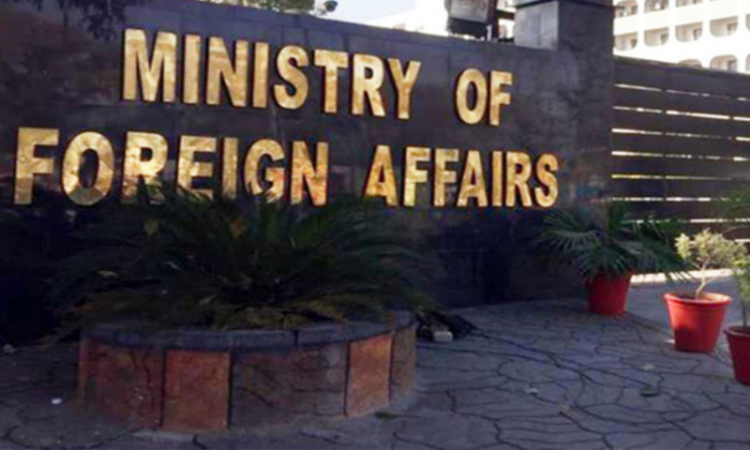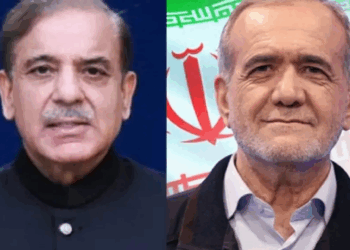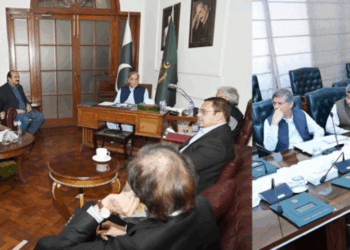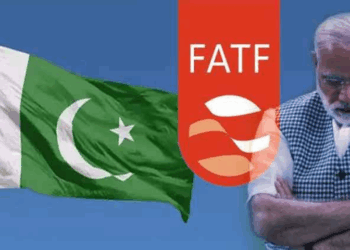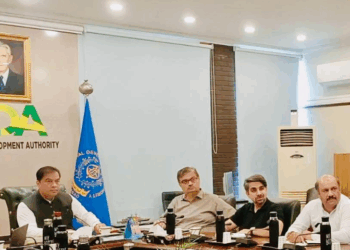Islamabad, February 17, 2025: The Foreign Office (FO) has reaffirmed that foreign affairs remain the exclusive domain of the federal government in response to Khyber Pakhtunkhwa’s (KP) initiative to send delegations to Afghanistan for security and economic discussions.
“Under the Constitution, foreign affairs are the federal government’s domain,” FO Spokesperson Shafqat Ali Khan stated during an interview, underscoring Islamabad’s authority over diplomatic engagements.
According to federal government sources, a senior KP official recently stated that consultations with the federal government would take place after the provincial administration completes its groundwork for the proposed delegations. This indicates that the initiative will proceed only after receiving approval from Islamabad.
The federal government is expected to assess all aspects of the matter before granting its approval, sources said. It may also include its own experts and officials in the delegations while defining the parameters of the discussions. Additionally, Pakistan’s diplomatic mission in Kabul could be asked to facilitate the visit if clearance is granted.
On Sunday, Adviser to KP Chief Minister Barrister Mohammad Ali Saif confirmed that the provincial government plans to send two delegations to Kabul. According to the proposed terms of reference (ToRs), one delegation will focus on creating a conducive environment for talks and handling diplomatic matters, while the second will comprise various stakeholders.
The move comes amid a surge in terrorist incidents in Pakistan, which Islamabad attributes to outlawed groups operating from Afghan soil—an allegation consistently denied by the Taliban-led administration in Kabul.
Pakistan and Afghanistan share a 2,500-kilometer porous border with multiple crossing points crucial for trade and people-to-people exchanges. However, cross-border terrorism remains a major concern for Pakistan, which has repeatedly urged Afghanistan to prevent groups such as the Tehreek-e-Taliban Pakistan (TTP) from using its territory to launch attacks.
Islamabad’s concerns have been reinforced by a report submitted to the United Nations Security Council (UNSC) by the Analytical Support and Sanctions Monitoring Team. The report highlights a nexus between the Afghan administration and the TTP, citing logistical, operational, and financial support provided to the militant group.
Furthermore, statistics from the Pakistan Institute for Conflict and Security Studies (PICSS) indicate that KP and Balochistan—both bordering Afghanistan—have been the hardest-hit by the recent surge in terrorist attacks, with incidents rising by 42% in January compared to December 2024.
In September 2024, KP Chief Minister Ali Amin Gandapur proposed holding direct talks with the Afghan government to address security concerns in the border regions, particularly in light of prolonged unrest in Kurram. The proposal, backed by Pakistan Tehreek-e-Insaf (PTI) founder Imran Khan, was met with strong criticism from the federal government, which viewed it as an encroachment on Islamabad’s authority over foreign relations.
While the KP government insists it will adhere to standard protocols, the federal government remains cautious, signaling that all diplomatic initiatives must align with national policy and Islamabad’s strategic interests.


